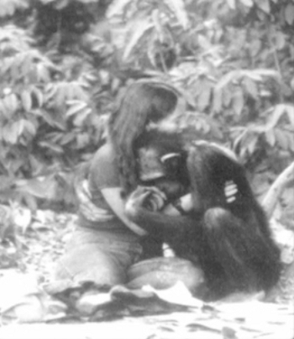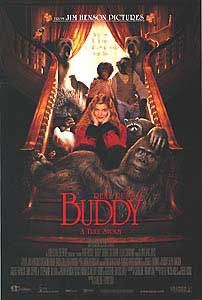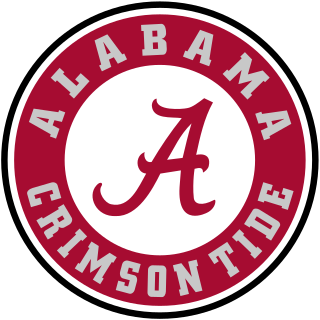Related Research Articles

Neam "Nim" Chimpsky was a chimpanzee and the subject of an extended study of animal language acquisition at Columbia University. The project was led by Herbert S. Terrace with the linguistic analysis headed up by psycholinguist Thomas Bever. Within the context of a scientific study, Chimpsky was named as a pun on linguist Noam Chomsky, who posits that humans are "wired" to develop language.

Washoe was a female common chimpanzee who was the first non-human to learn to communicate using American Sign Language (ASL) as part of an animal research experiment on animal language acquisition.

Daniel Francis Fouts is an American former professional football quarterback who played for the San Diego Chargers of the National Football League (NFL) throughout his 15-season career (1973–1987). After a relatively undistinguished first five seasons in the league, Fouts came to prominence as the on-field leader during the Chargers' Air Coryell period. He led the league in passing every year from 1979 to 1982, passing for over 4,000 yards in the first three of these—no previous quarterback had posted consecutive 4,000-yard seasons. Fouts was voted a Pro Bowler six times, first-team All-Pro twice, and Offensive Player of the Year in 1982. He was named a member of the NFL 1980s All-Decade Team, and elected to the Pro Football Hall of Fame in 1993, his first year of eligibility.

Steven M. Wise was an American lawyer and legal scholar who specialized in animal rights, primatology, and animal intelligence. He taught animal rights law at Harvard Law School, Vermont Law School, John Marshall Law School, Lewis & Clark Law School, Tufts University School of Veterinary Medicine, and at the Master’s in Animal Law and Society of the Autonomous University of Barcelona. He was a former president of the Animal Legal Defense Fund and founder and president of the Nonhuman Rights Project. The Yale Law Journal had called him "one of the pistons of the animal rights movement."

The grandmother hypothesis is a hypothesis to explain the existence of menopause in human life history by identifying the adaptive value of extended kin networking. It builds on the previously postulated "mother hypothesis" which states that as mothers age, the costs of reproducing become greater, and energy devoted to those activities would be better spent helping her offspring in their reproductive efforts. It suggests that by redirecting their energy onto those of their offspring, grandmothers can better ensure the survival of their genes through younger generations. By providing sustenance and support to their kin, grandmothers not only ensure that their genetic interests are met, but they also enhance their social networks which could translate into better immediate resource acquisition. This effect could extend past kin into larger community networks and benefit wider group fitness.
The Chimpanzee and Human Communication Institute (CHCI) was located on the campus of Central Washington University in Ellensburg, Washington. CHCI included a sanctuary for chimpanzees who have learned to communicate with humans and each other using American Sign Language. CHCI's director was Mary Lee Jensvold. It was founded by former co-directors Roger Fouts and Deborah Fouts. The institute was closed in 2013 when the remaining chimpanzees were transferred to facilities in Quebec, Canada and the building the facility was housed in, was demolished in 2018. Portions of the specialized structures used to house the chimps were dismantled and moved to the Chimpanzee Sanctuary Northwest in Cle Elum, for future use.
Loulis is a chimpanzee who has learned to communicate in American Sign Language.

Lucy (1964–1987) was a chimpanzee owned by the Institute for Primate Studies in Oklahoma, and raised by Maurice K. Temerlin, a psychotherapist and professor at the University of Oklahoma and his wife, Jane.
Deborah Fouts was the co-director of the Chimpanzee and Human Communication Institute (CHCI). CHCI was the home of Washoe, the first non-human to acquire a human language, and three other chimpanzees who use the signs of American Sign Language to communicate with each other and their human caregivers. She is an Adjunct Assistant Professor of Psychology (Research) at Central Washington University in Ellensburg, Washington. She is married to former co-director, now retired Roger Fouts.
Mary Lee Jensvold is a senior lecturer at Central Washington University. She was the Director of the Chimpanzee and Human Communication Institute (CHCI) located on the campus of Central Washington University. CHCI was the home of the chimpanzee Washoe and four other chimpanzees who use the signs of American Sign Language to communicate with one another and their human caregivers.

Buddy is a 1997 American biographical comedy-drama family film written and directed by Caroline Thompson, produced by Jim Henson Pictures and American Zoetrope, and released by Columbia Pictures on June 6, 1997. It starred Rene Russo as Mrs. Gertrude "Trudy" Lintz and Robbie Coltrane as her husband.

Experiments involving non-human primates (NHPs) include toxicity testing for medical and non-medical substances; studies of infectious disease, such as HIV and hepatitis; neurological studies; behavior and cognition; reproduction; genetics; and xenotransplantation. Around 65,000 NHPs are used every year in the United States, and around 7,000 across the European Union. Most are purpose-bred, while some are caught in the wild.

Roger S. Fouts is a retired American primate researcher. He was co-founder and co-director of the Chimpanzee and Human Communication Institute (CHCI) in Washington, and a professor of psychology at the Central Washington University. He is best known for his role in teaching Washoe the chimpanzee to communicate using a set of signs taken from American sign language.
Maurice K. Temerlin, was a psychologist and author.
Next of kin is a person's closest living blood relative or relatives.

Primate cognition is the study of the intellectual and behavioral skills of non-human primates, particularly in the fields of psychology, behavioral biology, primatology, and anthropology.

The Alabama Crimson Tide softball team represents the University of Alabama in NCAA Division I college softball. The team participates in the Western Division of the Southeastern Conference (SEC). It is currently led by head coach Patrick Murphy and assistant coaches Lance McMahon and Kayla Braud. The team plays its home games at the Rhoads Stadium located on the university's campus. The Alabama Crimson Tide softball team won its first national championship in 2012, after they defeated the Oklahoma Sooners in the championship series of the Women's College World Series.
In behavioral ecology, adaptive behavior is any behavior that contributes directly or indirectly to an individual's reproductive success, and is thus subject to the forces of natural selection. Examples include favoring kin in altruistic behaviors, sexual selection of the most fit mate, and defending a territory or harem from rivals.
Evolutionary biologists have developed various theoretical models to explain the evolution of food-sharing behavior—"[d]efined as the unresisted transfer of food" from one food-motivated individual to another—among humans and other animals.
Beatrix Tugendhut Gardner was an Austrian zoologist who became well known for the research that she conducted in the United States. She is most well known for her sign language studies with Washoe the chimpanzee, who was the first ape to learn sign language.
References
- Next of Kin: what chimpanzees have taught me about who we are. written by Roger Fouts. New York: William Morrow and Company, 1997. ISBN 0-688-14862-X